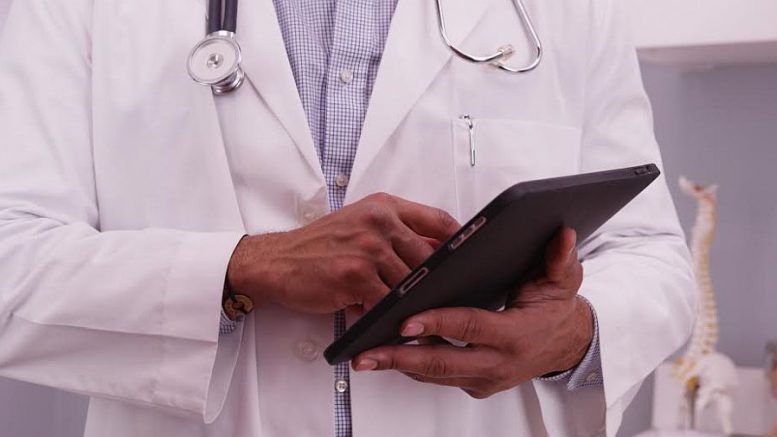By GREGORY ZELLER
With thousands of healthcare-related software programs and mobile apps now available to patients and providers, creating an industry-wide standard to evaluate their performances has been a virtually impossible mission – until now.
An innovative professor at the Feinstein Institute for Medical Research is developing a tool that can evaluate the quality and “therapeutic potential” of computer- and mobile-based e-health applications – the first-ever digital resource designed specifically to compare and rate software and apps across the healthcare spectrum.
 Amit Baumel, a medical research assistant professor at the Manhasset-based R&D division of the Northwell Health system, is credited as the creator of Enlight, which could ultimately help users – including consumers, health-IT professionals, clinicians and fellow researchers – identify the e-health apps with the best digital chops and most healthful potential.
Amit Baumel, a medical research assistant professor at the Manhasset-based R&D division of the Northwell Health system, is credited as the creator of Enlight, which could ultimately help users – including consumers, health-IT professionals, clinicians and fellow researchers – identify the e-health apps with the best digital chops and most healthful potential.
The development and testing of Enlight are part of a scientific paper published in March by the Journal of Medical Internet Research.
According to the paper, previous criteria-based assessment tools have “demonstrated the feasibility of objectively evaluating e-health interventions,” but so far haven’t incorporated “quality constructs associated with intervention outcome,” including such factors as behavioral changes and “therapeutic alliances.”
And the “generalizability of such tools” hasn’t been “explicitly examined,” the paper notes.
“Previous tools do not use measurements directly associated with therapeutic benefit,” added Baumel, a licensed clinical psychologist who earned a PhD in psychology from Israel’s Bar-Ilan University. “And they were not tested for their ability to compare e-health program types across different delivery mediums – (such as) mobile/computer platforms – and settings.”
Amit Baumel: Age of enlightenment (digitally speaking).Hence the innovator’s new digital tool, which aims to incorporate things like behavioral changes into its assessments, while
“address(ing) generalizability aspects,” according to “Enlight: A Comprehensive Quality and Therapeutic Potential Evaluation Tool for Mobile and Web-Based eHealth Interventions,” which was authored by Baumel and researchers Keren Faber, Nandita Mathur, John Kane and Fred Muench, representing both the Feinstein Institute and the Hofstra Northwell School of Medicine.
At its core, Enlight is a manual scale filled by specially trained raters who score 11 different aspects of product quality, including usability, design, therapeutic persuasiveness and privacy.
The criteria-based evaluation tool is meant to better inform decision-makers – limiting resources wasted on lesser tools and perhaps ultimately creating a “recommender system” that helps clinicians and patients make better e-health choices, the Feinstein Institute said.
Baumel and his development team still have a ways to go. For one thing, they’ve learned that superior e-health content alone doesn’t always change real-world behaviors, putting a premium on newer and more persuasive design and therapeutic-alliance qualities.
Baumel went so far as to suggest the “incorporation of quality measures that target app potential to encourage its users to create beneficial outcomes in their life, and not only the potential to engage users with the app itself.”
The team also plans to examine which quality aspects are better at predicting user behaviors – and, ultimately, to test the feasibility of that Enlight-centered recommender system for clinicians and end-users.
But Enlight’s potential as an all-purpose e-heath evaluation system is already evident, according to its creator.
“More study is required to test the validity of such tools,” Baumel said. “But we think that Enlight has the potential to provide a clear measurement of whether an e-health program can be effective.”
